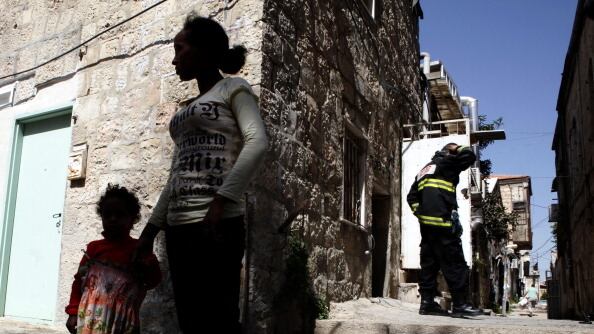This may come as a surprise, but the Israeli government doesn’t consult me about public relations. Which is a shame, because I have an idea for some truly inspired Hasbara: let the twenty Eritreans who have been stuck for six days on the Israel-Egypt border—in the desert, mostly without food—enter Israel.
Great photo-op, of course: Israeli soldiers helping beleaguered African women, to the theme-song from “Exodus.” And we’d avoid embarrassing questions, like why a nation founded by refugees forces pregnant women to languish on its borders (and reportedly to miscarry). But those are incidental benefits. More importantly, welcoming Eritreans would powerfully bolster the case for a Jewish state.

How so? Well, anti-Zionists often equate the Israeli government’s (shameful) treatment of African refugees with its refusal to recognize the Palestinian right of return. Both groups are non-Jews, the argument runs, and the desire for a demographically Jewish state means trampling on their rights. It’s a clever argument. By invoking hapless Sudanese and Eritreans, the argument avoids our instincts that Palestinian refugees are a political issue.
In contrast to this apparent simplicity, liberal Zionists have to paint a more complicated picture. Since we’re nationalists, we think human rights ought to—when possible—be funneled through nation-states. The Jewish right to self-determination means a Jewish state, just as Palestinian rights ought to be enshrined in, and protected by, a Palestinian state. Palestinians should return—to an independent Palestine in the West Bank and Gaza. National rights do intrude on individual rights (the Palestinian from, say, Tzfat cannot go back), but we accept that, because we think nation-states are usually better guarantors of rights than universal standards.
That’s why liberal Zionists like me find it so frustrating when anti-Zionists say there’s a “contradiction in terms” between our concern for rights and our nationalism. We are not idiots. We know there’s a contradiction, we just don’t think international morality is a geometry theorem. We work with that contradiction, because we think it’s the best way to guarantee the safety and rights of Israelis and Palestinians.
Which brings us back to the Eritreans. Because this pragmatic nationalism should not at all infringe on their rights to live in safety and dignity. In the first place, twenty people are demographically insignificant. Nor is the threat likely to deter refugees so desperate that, sad to say, they will jump off trucks, to their deaths, rather than face repatriation. Which means that it’s just not feasible to satisfy these people’s rights through their nation-state. Eritreans who go back report imprisonment, torture, and abuse. That’s why the United States, Canada, and Western Europe don’t deport Eritreans.
If liberal Zionism means anything, it means pragmatism. Welcoming Eritreans would show that the inherent tension between national rights and human rights is healthy and productive—in other words, that it’s not racist. It would help pull apart the simplicities of anti-Zionist polemics, because it would prove that we see a nation-state as a tool, not an end in itself. It would prove that a Jewish state doesn’t just protect Jews, but can also contribute to a better world. And that, frankly, is the Hasbara that really matters.






